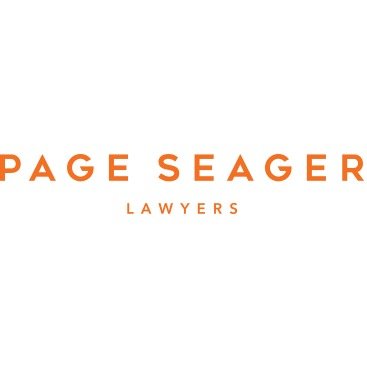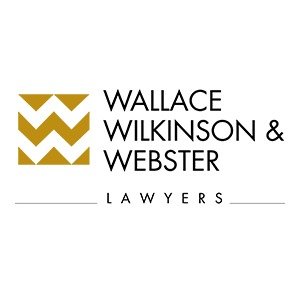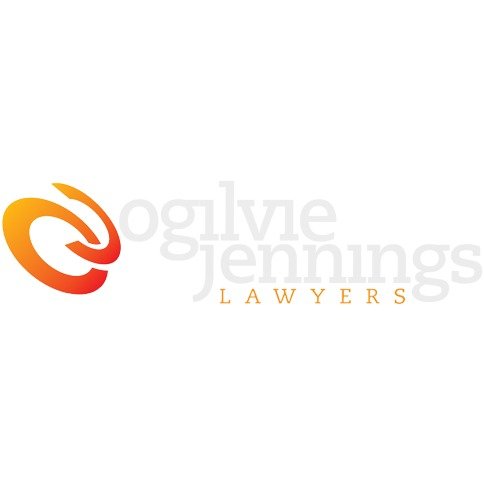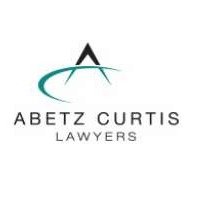Best Conveyancing Lawyers in Hobart
Share your needs with us, get contacted by law firms.
Free. Takes 2 min.
Free Guide to Hiring a Real Estate Lawyer
List of the best lawyers in Hobart, Australia
About Conveyancing Law in Hobart, Australia
Conveyancing is the legal process of transferring property ownership from one person to another. In Hobart, Tasmania, conveyancing involves preparing, verifying, and lodging the documents required for buying or selling residential, commercial, or rural property. The process ensures all legal obligations are met and helps both buyers and sellers avoid costly mistakes or disputes. Conveyancing law in Hobart is guided by state legislation and regulations, which are aimed at protecting the interests of all parties in a property transaction.
Why You May Need a Lawyer
A lawyer who specialises in conveyancing can provide critical support throughout your property transaction. Some common situations where legal help is essential include:
- Purchasing your first home or investment property
- Selling your property and wanting to ensure a smooth transfer
- Navigating the complexities of off-the-plan purchases or strata titles
- Dealing with issues related to easements, covenants, or zoning restrictions
- Managing disputes or legal challenges during settlement
- Understanding your rights and obligations in contracts for sale
- Requiring legal advice on stamp duty or other government fees
While some may attempt a property transfer themselves, a qualified lawyer ensures compliance with the law, protects your interests, and can handle unexpected complications during the process.
Local Laws Overview
Conveyancing in Hobart is regulated by a combination of Tasmanian state laws, including the Conveyancing and Law of Property Act 1884, and industry standards. The following key aspects are particularly relevant:
- Contract of Sale - All property sales require a formal contract outlining the terms and conditions, which must meet legal requirements.
- Title Searches - Lawyers conduct thorough searches to confirm ownership, identify encumbrances, and check for outstanding judgments or caveats.
- Disclosure Requirements - Sellers are legally obliged to disclose information about the property, such as easements, zoning, and any known defects.
- Settlement Process - The official handover of the property is known as settlement, and includes the exchange of funds, registration of documents, and transfer of legal ownership.
- Stamp Duty - Buyers are responsible for paying government-imposed stamp duty, calculated based on the purchase price.
- Trust Account Regulations - Lawyers must adhere to strict rules regarding the handling of client funds in trust accounts throughout the process.
Frequently Asked Questions
What is conveyancing and why is it necessary?
Conveyancing is the legal process for transferring property ownership. It is necessary to ensure that the transaction follows all legal requirements, the buyer obtains clear title, and both parties' interests are protected.
Can I do my own conveyancing without a lawyer?
While it is possible to handle your own conveyancing, the legal complexities and risks involved mean it is generally safer to engage a licensed lawyer or conveyancer to manage the process.
How long does the conveyancing process take in Hobart?
The conveyancing process typically takes between 4 to 8 weeks from signing the contract to settlement, though this can vary depending on the circumstances of each transaction.
What are the costs involved in conveyancing?
Costs usually include professional legal fees, government fees such as stamp duty and registration fees, search costs, and disbursements. Your lawyer can provide an itemised quote based on your transaction.
When do I pay the deposit for a property purchase?
The deposit is usually paid when the contract of sale is signed. The terms of payment are specified in the contract and are held in trust until settlement.
What searches will my lawyer conduct?
Searches typically include a title search, council rates and charges, land tax, building and zoning certificates, and searches for encumbrances or restrictions on the property.
What happens on settlement day?
On settlement day, your lawyer will ensure funds are transferred, documents are exchanged, and the property title is registered in your name. You receive the keys and legal ownership of the property.
Do I need to be present at settlement?
No, your lawyer will attend settlement on your behalf and notify you once the transaction is complete and you can take possession of the property.
What if there is a problem with the property before settlement?
If an issue arises after signing the contract but before settlement, your lawyer will advise you on your rights and work to resolve disputes, which may include negotiating repairs or compensation.
What documents are needed for conveyancing?
Key documents include the contract of sale, transfer of land form, proof of identity, mortgage documentation if applicable, and search certificates obtained during the process.
Additional Resources
If you are seeking more information or assistance with conveyancing in Hobart, the following resources and organisations are helpful:
- Tasmanian Department of Justice - For information about property law, land titles, and forms.
- Land Titles Office Tasmania - For title searches, property records, and registration details.
- Law Society of Tasmania - Find registered lawyers specialising in conveyancing and property law.
- Consumer, Building and Occupational Services Tasmania (CBOS) - For advice on buying and selling property.
Next Steps
If you need legal assistance for a conveyancing matter in Hobart, consider the following steps:
- Gather all relevant documents related to your property or intended transaction.
- Contact a qualified lawyer experienced in conveyancing who operates in Hobart.
- Prepare a list of questions and concerns to discuss with your legal representative.
- Request a clear breakdown of legal fees, disbursements, and any additional costs upfront.
- Stay informed and communicate regularly with your lawyer throughout the process to ensure a smooth and stress-free transaction.
Whether you are buying, selling, or transferring property, engaging a skilled conveyancing lawyer is the best approach to safeguard your investment and navigate the legal complexities particular to Hobart, Australia.
Lawzana helps you find the best lawyers and law firms in Hobart through a curated and pre-screened list of qualified legal professionals. Our platform offers rankings and detailed profiles of attorneys and law firms, allowing you to compare based on practice areas, including Conveyancing, experience, and client feedback.
Each profile includes a description of the firm's areas of practice, client reviews, team members and partners, year of establishment, spoken languages, office locations, contact information, social media presence, and any published articles or resources. Most firms on our platform speak English and are experienced in both local and international legal matters.
Get a quote from top-rated law firms in Hobart, Australia — quickly, securely, and without unnecessary hassle.
Disclaimer:
The information provided on this page is for general informational purposes only and does not constitute legal advice. While we strive to ensure the accuracy and relevance of the content, legal information may change over time, and interpretations of the law can vary. You should always consult with a qualified legal professional for advice specific to your situation.
We disclaim all liability for actions taken or not taken based on the content of this page. If you believe any information is incorrect or outdated, please contact us, and we will review and update it where appropriate.
















